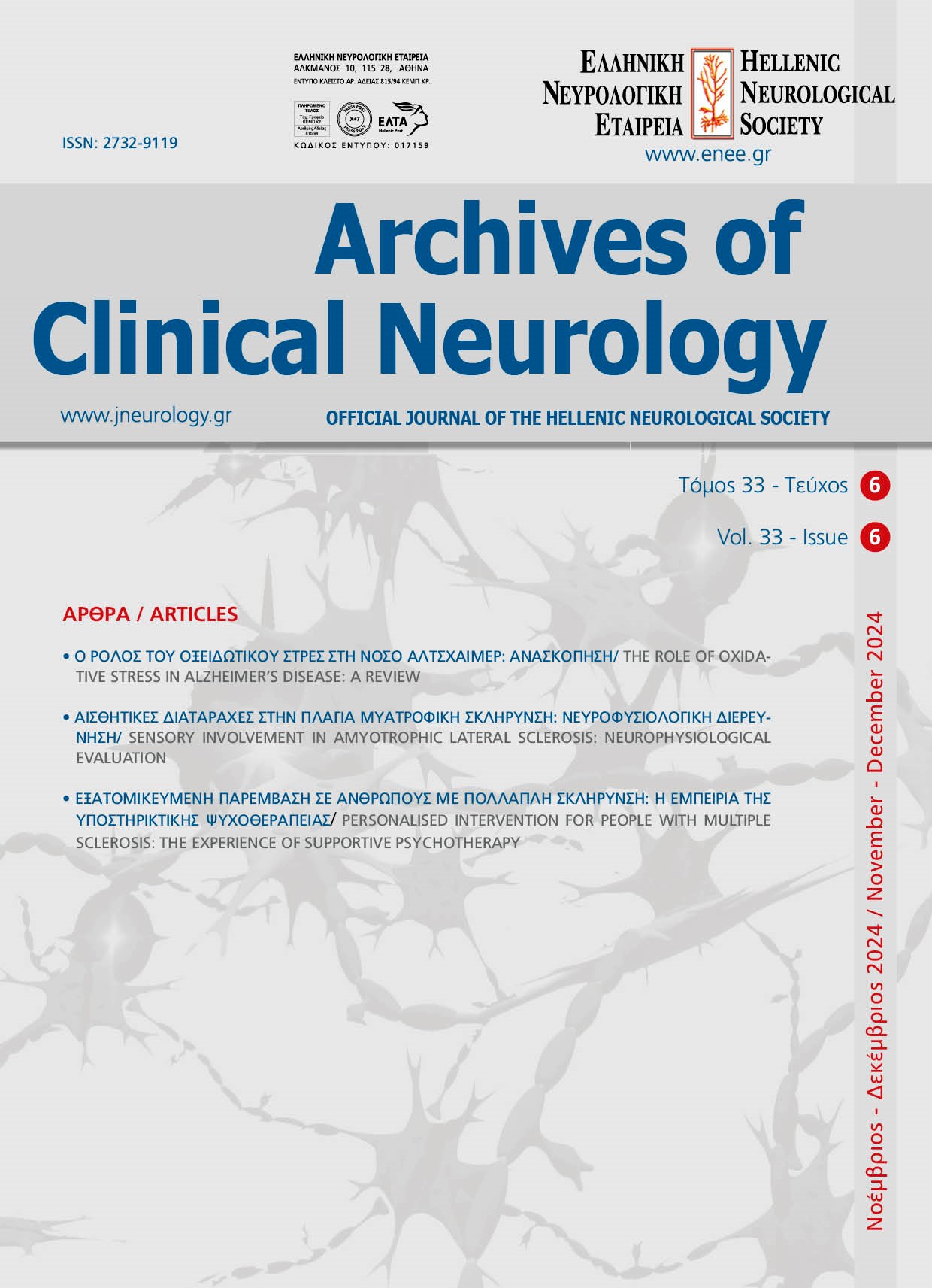PERSONALIZED INTERVENTION FOR PEOPLE WITH MULTIPLE SCLEROSIS: THE EXPERIENCE OF SUPPORTIVE PSYCHOTHERAPY
Keywords:
Multiple Sclerosis, non pharmacological interventions, psychotherapy, therapeutic relationship, psychosocial interventionAbstract
Background: Modern day literature has highlighted and noted the importance of psychosocial interventions for people with Multiple Sclerosis. The aim of this paper is to outline a personalized intervention program of supportive psychotherapy for people with Multiple Sclerosis. It aims to explore the in-depth experience of participants in supportive psychotherapy sessions. Furthermore, it's goal is to examine the impact of individual psychotherapy regarding the management of a chronic disease. Methods: Four semi-structured interviews were conducted with individuals participating in the program. The data sourced from the interviews were then analyzed using the Interpretive Phenomenological Analysis method. Results: After completing the analyzation, three subordinate themes were identified: a) the therapeutic framework, b) the journey of psychotherapy and c) shielding Multiple Sclerosis. Initially the results highlighted the most important factors in the therapeutic framework that need to be considered when developing these programmes. Next, the stages of the therapeutic process and the correlation between the therapeutic relationship and the therapeutic outcome were presented. Conclusion: The findings suggest that psychotherapy can act as a protective factor against Multiple Sclerosis, as it can contribute significantly to managing the challenges of chronic illness and improving the quality of life. The psychosocial intervention programs are crucial to be an essential part of the holistic treatment of this disease. These findings are significant for both theoretical and clinical purposes.


